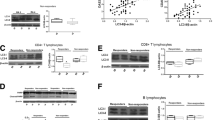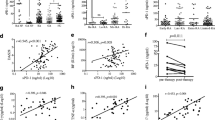Abstract
A low rate of as well as a high rate of apoptotic cell death is involved in the development of various human autoimmune diseases. In rheumatoid arthritis (RA), impaired apoptosis of rheumatoid synovial cells appears to induce hyperplasia of the synovial tissues, whereas the acceleration of apoptotic cell death of osteoblasts may contribute to periarticular bone loss in patients with RA. Humoral factors including cytokines and growth factors present in the rheumatoid synovial tissues modulate the expression of apoptosis-related molecules in the cells, which inhibits or stimulates the apoptotic process of synovial cells and osteoblasts. In addition, investigations of animal arthritis models suggest that an enforced induction of apoptotic cell death of synovial cells ameliorates synovial tissue hyperplasia. The increase of salivary gland cell apoptosis and the resistance of apoptotic cell death in salivary infiltrating mononuclear cells have been observed in patients with Sjögren's syndrome (SS). Immunohistochemical studies indicate that X chromosome linked inhibitor of apoptosis protein in salivary gland cells as well as Bcl-2/Bcl-xL in salivary infiltrating mononuclear cells may be critical anti-apoptogenic molecules in each cell type. Human T-lymphotropic virus type I (HTL V-I) is one of the pathogenic organisms for RA and SS, and we demonstrated that HTL V-I tax stimulates NF-κB nuclear translocation, inhibiting apoptotic cell death of human host cells, which may accelerate the autoimmune process. The association between the apoptosis of thyrocytes and the process of autoimmune thyroid diseases has also been examined, and our data suggest that Fas-mediated apoptosis of human thyrocytes is modulated by thyroid-stimulating antibodies, thyroid stimulation blocking antibodies, and cytokines. These data indicate that the correction of apoptotic cell death in each cell type will become a new therapeutic strategy for treatment of human autoimmune diseases.
Similar content being viewed by others
Author information
Authors and Affiliations
Additional information
Received: October 22, 2001 / Accepted: October 26, 2001
Rights and permissions
About this article
Cite this article
Kawakami, A., Eguchi, K. Involvement of apoptotic cell death in autoimmune diseases. Med Electron Microsc 35, 1–8 (2002). https://doi.org/10.1007/s007950200000
Issue Date:
DOI: https://doi.org/10.1007/s007950200000




